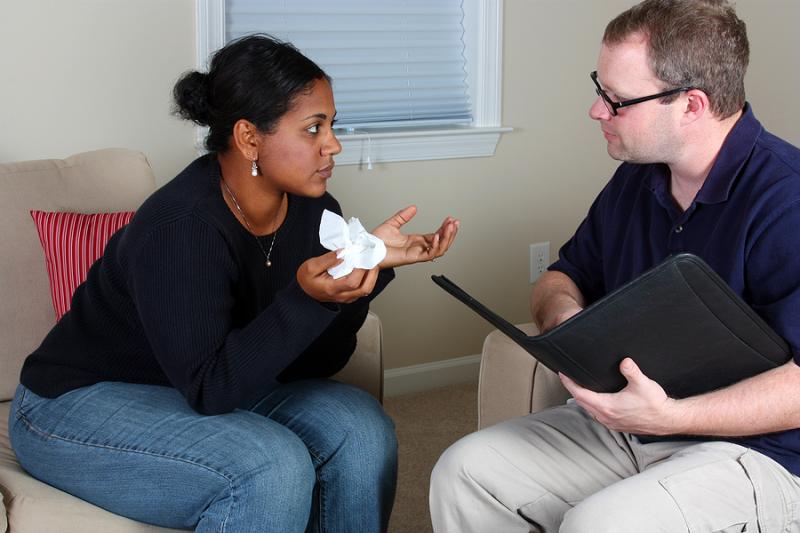Management of BPD reviewed
Catherine Walker and Charlotte Fantelli
 The response of borderline personality disorder (BPD) to psychotherapy is usually favourable, but the benefits of pharmacotherapy are usually only modest, and adverse effects may be considerable, according to a clinical review reported in the May issue of the New England Journal of Medicine.
The response of borderline personality disorder (BPD) to psychotherapy is usually favourable, but the benefits of pharmacotherapy are usually only modest, and adverse effects may be considerable, according to a clinical review reported in the May issue of the New England Journal of Medicine.
John Gunderson, MD, from the Psychosocial and Personality Research Program, McLean Hospital in Belmont Massachusetts writes that BPD is present in about 6% of primary care patients and persons in community-based samples and in 15 – 20% of patients in psychiatric hospitals and outpatient clinics.
‘Patients with BPD usually enter treatment facilities after suicide attempts or after episodes of deliberate self-injury. Such episodes result in an average hospital stay of 6.3 days per year and nearly one emergency room visit every two years, rates that are six to twelve times those among patients with a major depressive disorder’ Gunderson added.
Gunderson also writes that there are four evidence-based treatments:
Dialectical behaviour therapy: which involves individual, as well as group, behavioural therapy, with didactics and homework on mood monitoring and stress management. DBT is a psychological treatment that has been specifically designed for those with BPD. Developed by Marsha M. Linehan, DBT has a combination approach that involves different methods of therapy. This therapy is the best validated and easiest to learn of the psychotherapies.
Mentalisation-based therapy: which is a cognitive or psychodynamic therapy including individual as well as group therapy. This form of therapy was developed by Peter Fonagy and Antony Bateman, it rests on the assumption that during childhood a BPD sufferer was unable to correctly develop the recognition of what other peoples thoughts and intentions, and how this related to their own. While assuming a ‘not-knowing’ stance, the therapist insists that the patient ‘mentalise’ or examine and label his or her own experiences and those of others. This emphasis on thinking before reacting may be a process central to all effective therapies.
Transference-focused psychotherapy: which is developed from psychoanalysis, is an individual psychotherapy with twice-weekly sessions. It highlights interpretations of motives or feelings unknown to the patient and focuses on the patient’s misunderstanding of others, particularly of the therapist in the form of transference. This form of therapy is the least supportive and the most difficult to learn.
General psychiatric management: which is conducted once weekly, is a form of psychodynamic therapy developed from the American Psychiatric Association guidelines and the basic PD treatment textbook. General psychiatric management is the least theory bound and easiest to learn of the therapies but it is also the least well evaluated.
Please see our Borderline Personality Disorder treatment guide to find out more.
‘Selective serotonin-reuptake inhibitors and other antidepressants are frequently prescribed to patients with BPD, but in randomised trials such drugs have had little if any benefit over placebo’ Dr Gunderson writes.
‘Once the diagnosis is made, clinicians should educate the patient about genetic and environmental contributors and the likelihood of a favourable response to psychotherapy.’ Dr Gunderson concludes. ‘If the patient has relied on medications for treatment he or she should have them re-evaluated and a referral should be made for psychotherapy with a clinician who is experienced in BPD. A thoughtful evaluation of the patient’s self-harming behaviours can avert unnecessary hospitalisation.’
Charlotte Fantelli editor of Uncovered magazine comments 'I ask myself is this a breakthrough for BPD? With access to talking therapies incredibly limited and the high suicide rate of BPD sufferers, let's hope these findings make positive progress in a system that sometimes underestimates the seriousness of this condition.'
Further help on Borderline Personality Disorder
We hope you have found this information useful, please also see
What is Borderline Personality Disorder
Borderline Personality Disorder Symptoms
Borderline Personality Disorder Treatments
Living with Borderline Personality Disorder
Borderline Personality Disorder - A tribute to Louise Wright





